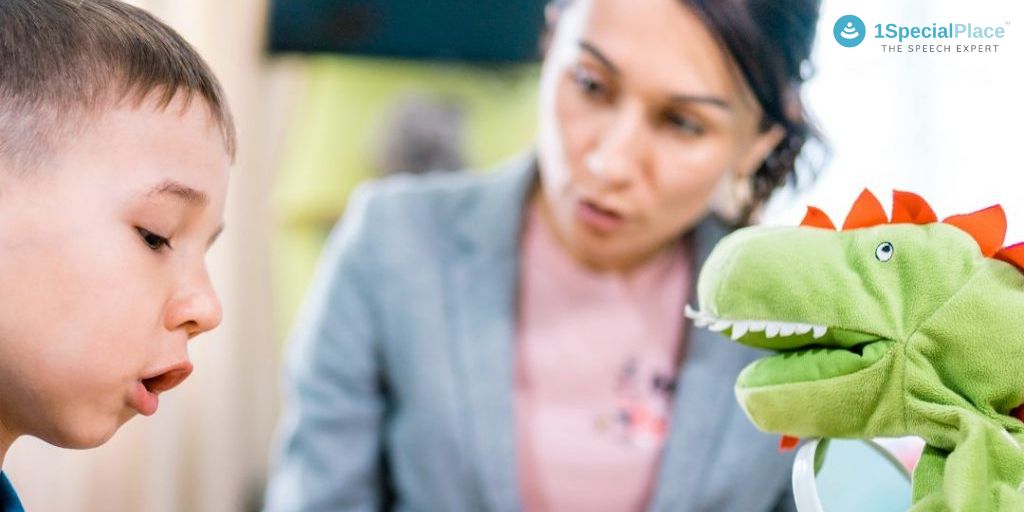
Why do we use Play in Speech Therapy Sessions?
Why do we use Play in Speech Therapy Sessions?
Play in speech therapy is a child-directed approach that includes the usage of various materials like toys and games. It helps the child improve on their speech and language goals in the most naturalistic environment while also being enjoyable and fun for the child. If you have visited a speech therapist before, you may wonder why there are so many toys in the room. And why does it seem that they are always playing? Well, play in speech therapy is used because of its many reasons and benefits. Read on to learn more.
Reasons why we use it?
-
Increases the child’s motivation.
When we use play, during speech therapy sessions, it motivates the child to participate in the session. In comparison to traditional speech and language approaches, play in speech is much more motivating for the child. And motivation is a key ingredient towards progress in your child’s speech and language goals.
-
Drastically increases the number of opportunities for the child to learn from.
Children learn best when we create opportunities for them. When we use play, there are numerous ways we can use a single toy/game to target speech and language skills. This is also known as ‘communication temptations’. Because it is so diverse and varied, play in speech can be used to create multiple opportunities during the sessions.
-
Child-directed therapy approach.
Play is child-directed. This means, the therapist lays out the materials in front of the child and creates opportunities for the child to use them. The child then chooses toys based on what they are interested in at the time. The speech therapist uses this opportunity to target the speech and language goals.
-
The child is the active participator.
When play is child-directed, the child becomes an active participator in the activity. And when the child is an active participator, they learn better.
-
Always interesting and enjoyable.
Everyone loves to play with toys. It is an enjoyable and fun activity to do. When using play, children tend to think that they are just playing with the toys. On the other hand, they will be acquiring the targeted speech and language skills simultaneously, but in an enjoyable way. That’s what play in speech is all about!!
-
Creates a naturalistic environment to learn within.
Play is a skill that develops over time and with age. There are various stages of play development that children transition through across their childhood. And this is what makes play a natural environment. They then acquire skills through those stages in the environment that they love to be in.
-
Children learn and retain information better.
Because of all the reasons listed above, children learn and retain information in the best way possible i.e. using play in speech.
Benefits of using Play in Speech therapy
-
Pre-linguistic skill development
- Eye Contact
- Joint Attention
- Pointing
- Facial Expressions/Body Language
- Social Gestures/Signs
- Turn-Taking /Social Routines and Sequences
- Babbling/Symbolic Noises
- Imitation
-
Language development
- Grammar development
- Vocabulary development
- Pragmatic skills
-
Social- Communication development
- Using language for speech tasks like greeting, demanding, promising, etc.
- Manipulating language to suit the listener or situation like talking to a baby vs talking to a teacher etc.
- Following rules for storytelling tasks or conversations such as turn-taking, staying on topic, etc.
-
Social development
- Sharing
- Cooperating
- Listening
- Following directions
- Respecting personal space
- Using manners
-
Cognitive development
- Creativity
- Abstract thinking
- Imagination
- Problem-solving
- Social cognition
- Mastering new concepts
-
Emotional development
- Enjoyment
- Relaxation
- Release of energy
- Self-expression
- Tension reduction
Read our published article on Benefits of Play-Based Speech Therapy
The list could go on. But yes, these are the few reasons and benefits of why we use play in speech sessions. And as the saying goes, one is never too old to have fun. Keep learning!!
- Tips to Promote School Readiness - February 28, 2023
- Baby Sign Language - February 24, 2023
- Summer Speech Activities for Children - February 21, 2023

Leave a Comment
(0 Comments)